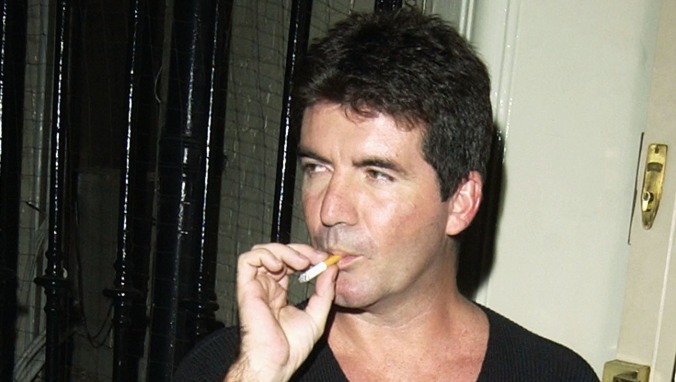Gabrielle Union opens up about toxicity—both figurative and literal—on the America's Got Talent set

It’s been roughly six months since the producers of America’s Got Talent informed judge Gabrielle Union that her own talents would no longer be needed on the NBC reality competition show. That means it’s also been six months since Union started talking publicly about her absolutely miserable tenure on the series, a process that has now culminated in a new interview she gave to Variety this week. In it, she goes into detail about a year of conflicts, racist comments and actions, and sometimes literal toxicity that she had to cope with—much of it spewed by the show’s creator and co-judge, Simon Cowell.
Everything in the interview tracks closely with a Vulture report that came out back in November, from accounts of a racist joke told by Jay Leno during a guest-judging stint, to inadequate vetting of performers who allegedly copied the acts of others, to the very air on the closed studio—which frequently filled with cigarette smoke, courtesy of Cowell’s habit of smoking indoors. In regards to the latter, Union talks about her very first day on the set, describing the feeling of “Coming onto a set and you are literally met with the very definition of a toxic work environment, and it’s being carried out by the most powerful person on the production.” She notes that her allergies to the smoke impacted her ability to do her job, stating, “I ended up staying sick for two months straight. It was a cold that lingered, and turned into bronchitis, because I couldn’t shake it.” (Co-judge Howie Mandel apparently wasn’t thrilled about having a neighbor with a constantly running nose, either.)
Union describes producers who weren’t willing to make systemic changes anywhere in the show’s production, from confronting Cowell about his smoking, to addressing either contestant or staff behavior. When Leno made his off-color joke, producers incensed Union by telling her they’d edit it out of the show. “You cannot edit out what we just experienced,” she responded. “There is not an edit button in my brain or in my soul. To experience this kind of racism at my job and there be nothing done about it, no discipline, no company-wide email, no reminder of what is appropriate in the workplace?”
Union’s comments on the show’s culture are wide-ranging, from co-worker Julianne Hough, who was photographed several years ago in blackface (“I’d like to trust her at her word that she learned her lesson, and has educated herself amid the consequences she faced and is hopefully a better person”), to a hairdressing department allegedly uncomfortable working with black hair (“When you are making the conscious decisions in hiring, and failing to recognize that you have whole departments that lack the necessary skill set to provide adequate services to all of that diversity that you are touting, you are creating an unequal and discriminatory experience”), to responding to comments from Terry Crews, who said his experiences on the show didn’t line up with hers. (Union said she was “disappointed” by Crews’ statement, but offered him her continued support.)
Union paints a damning picture of a TV set on which no one was doing anything to try to either affect change, or correct for past mistakes. She’s also utterly uncowed about the consequences of her own speaking out, stating that, “At the end of all this, my goal is real change—and not just on this show but for the larger parent company. It starts from the top down. My goal is to create the happiest, most high-functioning, inclusive, protected and healthy example of a workplace.”